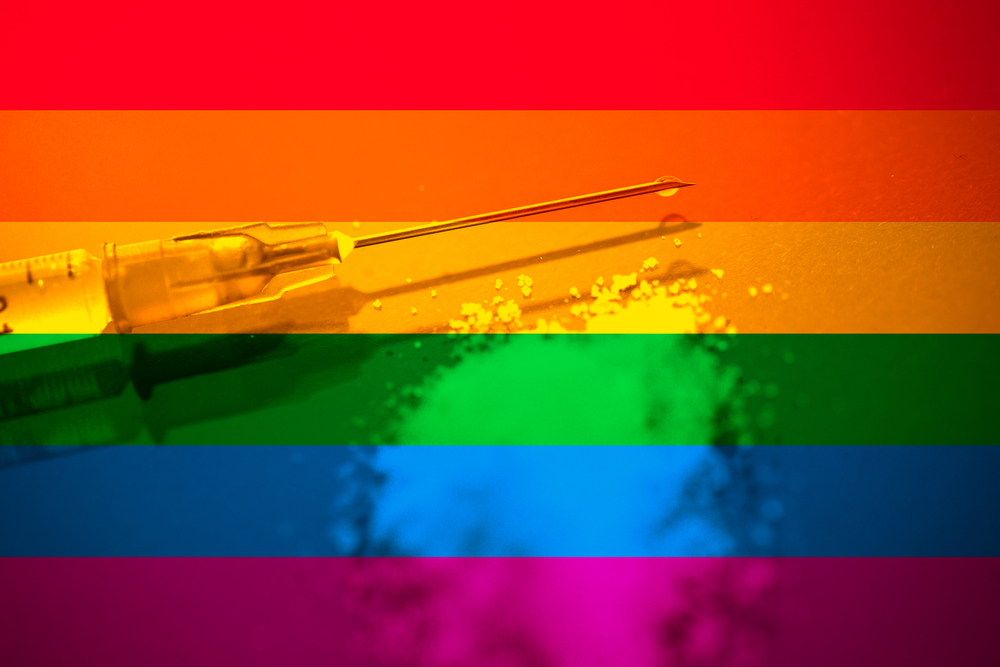Addiction in the LGBTQ Community
Addiction is an equal opportunity destroyer of lives. No matter one’s age or background, substance abuse can devastate the lives of addicts and their loved ones. While drug addiction can affect anyone, there are certain populations where addiction is more prevalent. One such population is the LGBTQ community. This article outlines the severity of addiction in the LGBTQ Community.
Prevalence of Addiction in the LGBTQ Community
The statistics of drug addiction in the LGBTQ Community is staggering. According to statisticsprovided by the National Alliance on Mental Illness (NAMI), an estimated 20 to 30 percent of the LGBTQ community struggle with substance abuse—compared to 9 percent of the general population. Additionally, one in fourof LGBTQ people abuse alcohol, compared to 5-10% of the general population.
The rates are even more alarming among teens in the LGBTQ community. Statisticsshow that substance use in this population is –on average-190% higher when compared to heterosexual youth. Additionally, addiction rates are substantially higher within some subpopulations within the LGBTQ youth community. For example, addiction rates are 340% higher for bisexual youth and 400% higher for females when compared to heterosexual youth.
Reasons for Addiction within the LGBTQ Community
The reasons why addiction rates are significantly higher within the LGBTQ community are clear. Most obviously, those who identify as LGBTQ face incredible stigmatization and discrimination in daily life. Those within this community are also the target of hate crimes, public humiliation and other forms of ridicule. Additionally, those who are LGBTQ are often rejected by family members and peers when after coming out.
With faces with these obstacles, those in the LGBTQ community turn to drugs and alcohol in order to cope with these issues. While substances numb their feelings of anger and fear, it is only a short-term solution. Without finding the appropriate professional help, those in this community will develop substance abuse issues that will further compound matters. In addition to addiction, those in the LGBTQ community can develop mental health issues such as depression, generalized anxiety order, and are at greater risk for self-harming behaviors and suicide.
Hurdles in Finding Help
For those in the LGBTQ community who seek help for their substance abuse, finding the appropriate help can be an uphill climb. While there are treatment centers that state they have programs specifically for the LGBTQ community, what they offer may not be enough to fully meet this population’s unique needs. One studyof 854 treatment programs that reported to have specialized treatment services for LGBTQ people, only 62 confirmed these services actually existed during a telephone follow-up.
Due to limited resources, those addicted within the LGBTQ community may be extremely reluctant to seek help elsewhere. They may fear discrimination within the confines of treatment if they disclose their sexual orientation to staff and recovering peers. They may face increased stigma, discrimination and intolerance in treatment. For those in the LGBTQ community who need help with substance abuse issues, they need to dig deeper to find the appropriate treatment options.
First and foremost, those in this community must find treatment centers that have separate units or wings that have programs specifically geared towards those in the LGBTQ population. Additionally, there must be staff that is experienced in dealing with the specific issues that impact the LGBTQ community. Having a welcoming and supportive atmosphere that is open with LGBTQ persons and their allies significantly improves the chances of long-term recovery.
Are you in the LGBTQ community and need treatment services? Are you an ally trying to help a friend or loved one who is LGBTQ find the treatment they deserve? Call the compassionate professionals at Drug Rehab Program Journal toll-free at 1-800-205-1201. We can help you find the appropriate treatment sensitive to your specific needs.

